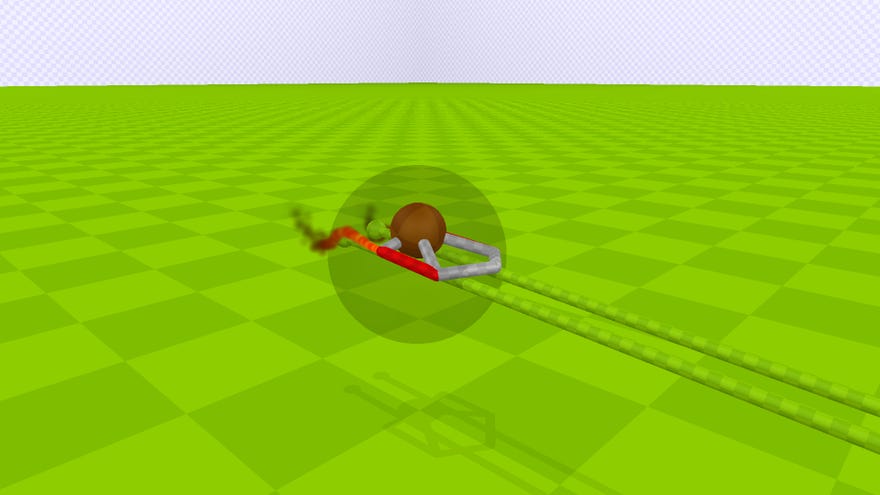Have You Played... Lucifer's Atoms?
Devil's in the details
It makes me a little bit sad sometimes, when I play something absolutely fascinating that also happens to have barely any chance of getting the recognition it deserves. These games aren't confined to obscurity because of the ol' David & Goliath narrative of plucky indies and all-powerful AAA ogres, but because they seem to be made without a care for mass market appeal. Lucifer's Atoms, from Peter Stock (the developer of the marvellous Armadillo Run), is one such game.
Armadillo Run is great. It's a sandbox-ish construction game, of the "make a thing out of a library of components in order to solve a series of puzzles" variety. The things you build might be rocket sleds, or giant Rube Goldberg assemblies, depending on your appetite. I dunno if you remember my Have You Played... Castle Crashers?, where I talked about getting really depressed in Melbourne and hiding in a deserted indie game gallery for two days, but Armadillo Run occupied me for the entirety of the second of those days. It was great.
Feeling nostalgic for that day, I set out earlier this year to get myself a copy of Armadillo Run, and tracked it down on Peter Stock's website - which I'd only have found if I was searching for Armadillo Run. I emailed Peter to chat about the game, and he kindly sent me a copy of Lucifer's Atoms, its sort-of-sequel. It's wild. LA is Armadillo Run's basic premise, but with every feature cranked up - this is a physics-based construction toy that beats Besieged, Nimbatus, or any of the other games of this type I've played recently.
The only thing is, it's really, really obtuse. Not in the sense that it's baffling to figure out - I mean it is, but only in as much as anything involving automation, logic, and programmable thrust has to be by necessity. But it also just... looks forbidding? The UI is austere, like it's from a piece of business software, or something used by scientists to electrocute worms, and it all feels like it's from the late 1990s. Which is absolutely fine, in my book. But it's very rarely a route to megasales. And that's a shame, because more people should be able to have fun with this game. In fact - you: go check it out.
Also, the name? It's brilliant, IMHO. But again, it doesn't exactly sell the game. You'd think it was a roguelike set in a demon-infested quantum research facility, rather than a placid game about moving spheres about with rockets and jury-rigged cam assemblies. See this charming entry from the game's FAQ:
Is your game Satanic?
No. Lucifer means light-bearing – the planet Venus (the evening/morning star) is called Lucifer, and animals that glow in the dark use a chemical called Luciferase. Light is associated with knowledge. Lucifer's Atoms challenges players to combine simple objects together to create more complex mechanisms and I hope it gives them a feeling of enlightenment.
That's a commendably elegant rationale, but it's hardly self-explanatory. And again, that's not a slam - it's not like "Fortnite" means anything, after all. And I don't even want Lucifer's Atoms to be any different. It's just a shame that in a world where those who shout loudest get sales, quiet oddities like this can languish.

